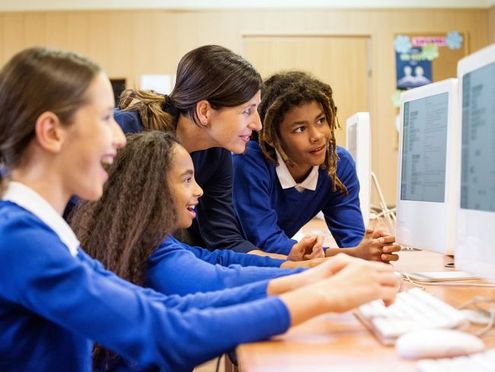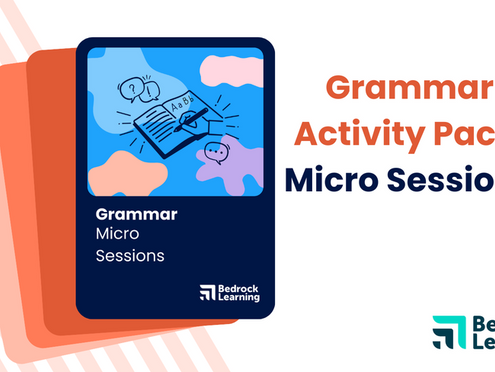The increasing popularity of homeschooling
When schools closed due to Covid-19, homeschooling became an enforced necessity rather than a considered choice. For some, this was a necessity. However, for others, this experienced opened the doors for the potential of homeschooling and remote education for their child.
Indeed, prior to lockdown, homeschooling was already a growing trend, with the number of homeschooled children having doubled to 60,000 between 2015 and 2019. It can be a rewarding alternative to classroom learning and you may have found that your child has thrived in a homeschool environment.
Whether it was inspired by the Covid-19 isolation period, or whether it is just a natural consideration for you and your child, you may be wondering whether homeschooling is right for your child long term.
Before you decide whether to send your child back to school in September, we explore what full-time homeschooling entails, so you can decide whether your family can benefit.
1. Is homeschooling right for me?
Homeschooling is a completely different approach to learning; it allows you to reflect your child’s unique strengths, interests and personality in what and how they learn.
If you feel that your child's school can be results-oriented, homeschooling lets your child excel in other areas that can, at times, be underestimated by conventional education, such as music, art, sports and the outdoors. Learners also benefit from having far more one-on-one time than they would in the classroom, allowing them to progress at their own pace.
On the flip side, your child might find socialisation harder. In order to ensure your child connects with others their age, you will have to put more emphasis on finding homeschooling groups, studying sessions and playdates, rather than relying on the socialisation of school.
Playing the role of both parent and teacher can be tricky – you should establish a clear distinction between “school time” and “home time”.
As well as this, homeschooling resources can also be expensive, compounded by the fact that it may limit the number of hours you can work. You should ensure your child has all the academic support they need, whether that involves you learning how to teach them effectively or hiring private tutors.
2. What are the requirements for homeschooling?
If you request to take your child out of school full-time, the school is obliged to accept. While you’re not required to follow the National Curriculum, the government must be satisfied that your child is receiving an adequate education. If they believe standards aren’t being met, they can serve a school attendance order. Read the full government guidelines.
3. Which methods are best for homeschooling?
A common misconception about homeschooling is that you should try and recreate the school environment at home. Not being part of an institution is one of homeschooling’s biggest advantages, so embrace the freedom and flexibility it allows. Take time to research the various styles of homeschooling and try different ones out for size. It doesn’t have to be a case of sticking to just one method, either – pick and choose what works for you and your child.
Tried-and-tested homeschooling styles to look into include:
- School At Home – replicate the traditional school routine and curriculum at home
- Classical – emphasise teaching children how to learn for themselves, using grammar, logic and rhetoric
- Charlotte Mason – encourage learning through play, creative activities and real-life situations
- Montessori – let your child lead the learning and support their natural development
- Eclectic/Relaxed – combine several homeschool methods to focus on what you think is most important
- Unschooling – replace formal lessons with everyday life experiences and let your child pursue their interests and learn naturally
Find out more about different homeschool methods.
4. What resources are available to help me homeschool my child?
There’s a wealth of resources out there to help you create a well-structured, holistic and engaging learning plan for your child. Once you decide which approaches to homeschooling appeal to you, have a look at different online curricula to scope out what’s available. In response to the school closures, lots of educational tech platforms offered free resources to help those homeschooling for the first time; keep an eye out for any ongoing offers. Aim to achieve a good balance of subjects and types of activities, from hands-on, experiential learning to interactive, subject-specific games.
Homeschooling can feel isolating, especially after being accustomed to the support system of a school. Remember: you’re not the only family making this change! Seek out a home education community, whether online or in person. Forums, for example Facebook pages, can be great for sharing resources and tips, while local groups offer the chance to meet with other homeschoolers for educational and social activities. The Home Schooling Association and Education Otherwise are great springboards to learn more about the home education community.
Ultimately, how you want to educate your child is your choice to make. Homeschooling can have its challenges, but can also be incredibly enriching. If you decide it’s right for you and your child, take the time to figure out how to tailor it to your individual needs and get the most out of it, using all the resources available to you.
If you're already homeschooling or considering homeschooling, remote education tools can be very helpful for providing the structure and consistency of learning, without the traditional school environment. Find out how Bedrock Learning can support your home education.




